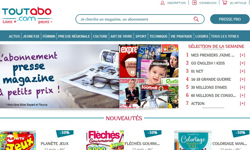
The overarching theme from the ACE Empower event, where the students enrolled on this year’s programme presented their research findings, was ‘collaboration’ – specifically how the industry would perform much better in terms of newspaper and magazine sales if all sections of the supply chain worked better together. The students, who were split into three syndicates, came up with a number of recommendations, but achieving them depended on us all working in harmony; not something publishers have ever been particularly good at.
The Empower educational programme has been run by ACE since 2009 and its aim is to give “emerging talents” from across the industry a thorough introduction to all parts of the supply chain. This gives them a chance to break out of their day-to-day silos, to gain a more holistic view of all aspects of ‘audience’ (which we used to call ‘circulation’) – to give them an understanding of each of the links in the chain, the interfaces, how it works now and how it might work better in the future.
To that end, the course includes twelve half-day modules including on-site visits to: magazine publishers (Bauer and Hello!), a newspaper publisher (where they got the adrenalin-rush experience of sitting in on the Mirror’s daily editorial meeting), a printer (Newsprinters at Broxbourne), a distributor (Seymour), wholesalers (Smiths and Menzies) and a retailer (WH Smith). The programme, which continually evolves, also includes modules on free distribution (JYL, Gold Key Media and Shortlist), digital (Jellyfish Connect and Dennis Publishing) and subscriptions (Big Wheel Consultancy). The course concludes with the twelve students dividing into syndicates to research a key area and to present their findings to an invited audience of experts.
The three syndicate projects this year were: ‘the UK retail landscape’, ‘promotional mechanics’, and ‘the future of the supply chain’. Industry leaders converged on Northcliffe House to hear the students present their work. Course tutor Jim Bilton cautioned us not to expect these young professionals, near the start of their careers, to solve the myriad challenges facing us all, something the great and good in the room had so far failed to do!
Nonetheless, I was eager to hear what the students had to say. I came away with six key messages about what we should be doing:
1. Develop strategies for growth sectors
The UK retail landscape never stands still, and, currently, the ‘convenience’ and ‘discount’ sectors are growing. Apparently, the average shopper now visits a convenience store nine times a week, which means more chances to sell them a newspaper or magazine. Publishers need to develop distribution plans specifically catering for this type of store and shopper. This might include store-specific ranges.
2. Improve the shopping experience
Shelf space for our products might be declining, but we have to make that space work harder. This means improving the customer experience in-store – more theatre, more experiential, more use of digital via QR codes and the like, to really bring the category to life.
3. Be more imaginative with copy placement
We can’t wait for consumers to come to us, we’ve got to place our copies in front of them. This means putting our copies in different parts of the store; for instance, kids mags in the toy section, food mags in the baking ingredients section, beauty mags in cosmetics, homes and interiors mags in soft furnishings etc etc. And, of course, specialist retail outlets (garden centres, bike shops, clothing stores) offer similar opportunities. That way, the potential for impulse purchases is greatly amplified.
4. Improve promotional effectiveness
Promotions are the lifeblood of the industry, but the general consensus is that they are underperforming, via a combination of weak offers and poor implementation. Greater focus on delivering real value to the consumer and working with the supply chain to deliver maximum impact will change that: better offers, better creative, better delivery.
5. Remove complexity and improve efficiency
The sale or return nature of our industry makes it a complex category. If the sector’s profitability declines, then retailers will be more inclined to invest in simpler, more profitable categories. There is no magic wand, just a general awareness that the industry needs to work harder to make our product simpler to manage. The industry also needs to address basic performance issues, such as the perennial bugbear of late delivery. Late delivery = fewer sales. This should be fixable…
6. Explore print on demand
This sent a collective shudder through the room. Whilst still seen as some way off, the ability to print your magazine in store, on demand, was seen by some as a solution to many of the challenges facing the industry, although it was also acknowledged that, were this to take off, it would involve the destruction of large parts of the existing supply chain – an example of turkeys voting for Christmas? There was also some scepticism about the ability of the technology to ever deliver printed product to the required quality standard.
With the exception of the last, which would probably put a lot of people in the room out of a job, it all boiled down to collaboration. To improve sales, to create theatre, to develop out-of-category opportunities all requires retailers to be enthusiastically engaged. The whole supply chain – publisher, printer, distributor, wholesaler and retailer – needs to be closely aligned. Retailers need to believe that publishers are invested in the category. With publishers focused more on digital and subscriptions, many retailers don’t believe that to be the case.
The event ended with the all-important certificates and pictures. When asked what they found most useful about the course, delegates answered – to see how other parts of the industry worked, and how everything hangs together. If we are all to rise to the challenge of improving sales performance through better collaboration, then courses like the ACE Empower programme have an important role to play.
If you would like more information about the 2019 ACE Empower programme, please contact Mark Farris at: mark.farris@acecirculation.com










